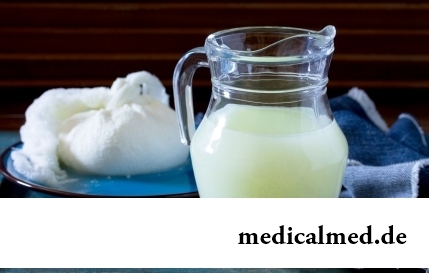





Tyulka
Tyulki are representatives of the small fishes belonging to family seldevy. Live in waters of the Caspian, Azov and Black seas. Their body weight reaches 10,0 g, and length – 9,0 cm of Tyulki reach puberty at the age of two years, and total period of their life of 5-6 years. Eat small plankton.

In Russia the tyulka is considered one of the cheapest species of fish, and here abroad on the contrary – a delicacy. Now in shops the fresh, frozen, tinned and salty tyulka is on sale. It can be cooked, fried. In industrial conditions from a tyulka cook very tasty canned food, and also receive from it fish meal.
Advantage of a tyulka
Useful properties of a tyulka for a human body are caused, first of all, by huge contents in this fish of calcium. This element is necessary for formation of a bone tissue, health of hair and nails, besides it regulates blood coagulation processes.
Phosphorus with which the tyulka is also rich is necessary for digestion of calcium. These minerals are generally concentrated not in its meat, and in the tail, stones, a spine and skin. Therefore the tyulka should be prepared in the whole look and to use entirely, without trying to receive from it a small amount of fillet.
In addition to minerals of a tyulk it is rich with the omegas-3-fatty acids having the expressed antioxidant properties. Also meat of a tyulka contains the polyunsaturated fatty acids which are lowering the level of triglycerides in blood and having thereby antiatherosclerotic effect. Therefore nutritionists recommend to include a tyulka in a diet of the people having atherosclerosis, diseases of cardiovascular system and joints.
Structure and caloric content of a tyulka
In 100,0 g of a tyulka contains:
- Mineral substances – 14,3 g;
- Fluorine – 430 mkg;
- Nickel – 6 mkg;
- Potassium – 187 mg;
- Water – 61,0 g;
- Polyunsaturated fatty acids – 2,9 g;
- PP vitamin – 5,94 mg;
- Cholesterol – 84 mg;
- Iron – 14 mg;
- Zinc – 0,7 mg;
- Chlorine – 165 mg;
- B2 vitamin – 0,1 mg;
- Magnesium – 51 mg;
- Molybdenum – 4 mkg;
- Sodium – 4917 mg;
- Chrome – 55 mkg;
- B1 vitamin – 0,02 mg;
- Phosphorus – 330 mg;
- Calcium – 91 mg.
Caloric content of a tyulka makes 136,8 kcal on 100,0 g of a product. At the same time it is necessary to consider that the caloric content of a tyulka depends also on a way of its preparation. The boiled, baked or salty tyulka, and fried – the greatest has the smallest number of calories.
Harm of a tyulka
Despite all the useful qualities, a salty tyulka it is difficult to call a useful food stuff. It is connected with the fact that in 100,0 g of well salted fish not less than 1,5 g of table salt contain, and it makes 30% of standard daily rate. Therefore the salty tyulka should be eaten in small amounts and not every day. This food stuff has to be completely excluded from a diet of the people having diseases of kidneys and cardiovascular system. It is the best of all for them to eat the boiled or baked tyulka having valuable useful properties and which is not promoting development of hypostases, increase in level of arterial pressure.
Tyulka in Oil canned food is also not a food stuff, useful to health of the person, since they contain excesses both oils, and salts. At the same time it is necessary to consider that for production of canned food most of producers uses the cheapest grades of vegetable oil which are almost not comprising vitamins and fatty acids, and, therefore, not giving nothing to the person except excess calories. So, for example tyulka caloric content in own juice makes about 200 kcal on 100,0 g of a product, and the caloric content of the same amount of canned food "Tyulka in Oil" makes already 320 kcal.
According to researches, the women drinking several glasses of beer or wine in a week have the increased risk to develop breast cancer.

EKO, or extracorporal fertilization - a method of treatment of infertility which became the reason of a set broken mines in due time...
Section: Articles about health
The state of health of the person in many respects depends on food. The organism will well function if during food it receive only useful substances, necessary vitamins and microelements. In this case there will be no problems with digestion, with лишн...
Section: Articles about health
For many women the word "fat" sounds as a sentence. In aspiration to an ideal figure they try to exclude, first of all, from the menu all dishes containing fats without having at the same time a clear idea of a role of these substances in exchange processes, and of effects for health with which food restrictions of this sort are fraught. For what the human body needs fats and as their deficit in a diet is shown, we also will try to find out....
Section: Articles about health
The problem of diagnosis was and remains to one of the most important in medicine. From that, the reason недо will be how precisely defined...
Section: Articles about health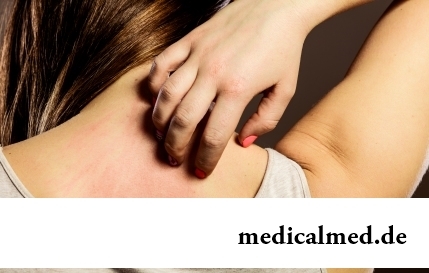
Frosty air, fresh wind and easy snowball at most of Russians are associated with cheerfulness, health and cheerful entertainments on which our winter is so generous. But, unfortunately, cold season sometimes brings also troubles with health. It is not about a season...
Section: Articles about health
Stability of a hormonal background is one of the most important conditions of preservation of health of the woman. At the same time endocrine system – the thin device extremely sensitive to any external influences. Changes of a way of life (for example, a diet), emotional stresses, infectious diseases, reception of some drugs can become the reason of hormonal failure. Besides, work of hemadens has the natural specifics in certain moments of life: on various St...
Section: Articles about health
The sclera and mucous membrane of an eye are intensively supplied with blood vessels which problem - to sate nervous tissues of body to a pitata...
Section: Articles about health
Musicotherapy – a treatment method which caused and causes a set of a controversy concerning its efficiency. However the facts are relentless: during the numerous researches curative impact of music on an organism was scientifically confirmed. Since then in a number of the countries a method...
Section: Articles about health
Coffee – favourite drink of many. For the last decades it more than once already declared very harmful, extremely useful and even necessary for normal life activity. In spite of the fact that this product became for us usual for a long time, there are many myths about properties of coffee and its impact on a human body. Readers can get acquainted with the most widespread of similar delusions today....
Section: Articles about health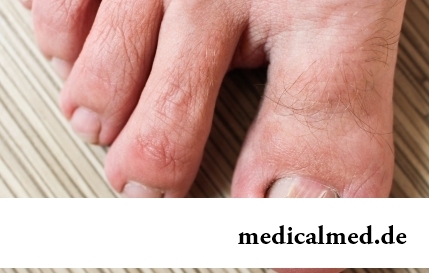
The word "onikhokriptoz" is unfamiliar to most of people, meanwhile quite so physicians call very widespread problem: growing...
Section: Articles about health
Run - one of the most available and effective ways to revitalize the organism. Knowing about its extraordinary advantage, each of us at least once tried to make jogs, but only the few made these occupations regular. In spite of the fact that in jogging (easy an ozdor...
Section: Articles about health
The fatigue, sleep debt, disturbances of food, bad mood, vagaries of the weather – all these circumstances badly affect our appearance. Especially the person suffers: skin becomes flabby, loses healthy color, becomes covered by wrinkles, zones of hypostases and dark circles under eyes appear. It is not always possible to be saved from influence of aggressive factors, but we are quite able to minimize its effects. For this purpose usually apply the cosmetics and procedures helping увлаж...
Section: Articles about health
Striya (extension) are the defects of skin having an appearance of direct or wavy strips from 1 to 10 cm long and 1-5 mm wide. In the majority with...
Section: Articles about health
Transfusion of donor blood has almost century history. In spite of the fact that this procedure is quite usual for many people, process of blood donation is still surrounded with numerous myths. Today we aimed to discredit the most widespread of them....
Section: Articles about health
The number of long-livers is very small. One person from 5 thousand lives up to age of 90 years, and the centenary boundary steps over only one of 20 thousand. However, doctors claim that each of us is quite able to affect own destiny. At the same time it is not so much about living as long as possible, how many about an opportunity to keep physical and intellectual activity and to avoid decrepitude. We will also talk about the ways helping to achieve this result today....
Section: Articles about health
Cellulitis - very widespread cosmetic shortcoming which arises approximately at 80% of women sooner or later. Emergence ег...
Section: Articles about health
Life of the modern woman is very difficult. Opportunities to realize itself are wide: it not only education and career, but also the most various hobbies from sport before needlework. It is not less important to build private life, paying an attention maximum to children, the husband, parents, e...
Section: Articles about health
The modern person not always manages to find housing in the environmentally friendly region and such work which would not do harm to health. With food stuffs at first sight the situation is much better: shops are overflowed with goods which are positioned by producers as very useful and absolutely safe. Many Russians are absolutely sure that the choice of products with marking "bio", "эко" or "organik" guarantees them and members of their families an optimal variant of food. To a sozhala...
Section: Articles about health
The mankind knows that some toxins at intake in the minimum quantities have therapeutic effect...
Section: Articles about health
Many parents of children at the age of 2-4 years face excessively whimsical behavior of the child. The kid exhausts constant crying and whims not only the parents, but also himself. In what the reasons of children's whims. And how to fight with them?...
Section: Slideshow
It is impossible to imagine human life in which there would be no plants. Practically in each apartment and any production room there are window plants, millions of people with pleasure are engaged in gardening and truck farming, many citizens spend free time on seasonal dachas. However we very seldom pay attention to those properties of our green pets who can make the neighbourhood with them unpleasant and even unsafe....
Section: Articles about health
The majority of gynecologic diseases prove three main signs, each of which speaks about need to the visa...
Section: Articles about health
Shops of household appliances offer us the huge choice of various devices for the house. Whether there are among this abundance devices which not only facilitate house work, but also help to keep health of the person? Of course, and we will tell about them today....
Section: Articles about health
All are familiar with cold, and practically everyone believes that he has sufficient knowledge and experience that correctly to treat it. In practice most of people makes mistakes in attempts to get rid of rhinitis, and divides numerous delusions it....
Section: Articles about health
Tuberculosis – a serious infectious disease which development is caused by mycobacteria (Koch's bacilli). The illness is known from a deep d...
Section: Articles about health
The cosmetics intended for improvement of a condition of skin, nails and hair are used by each woman. Expenses on regular acquisition of the fashionable widely advertized products of well-known companies for many become very notable and significantly to an obrema...
Section: Articles about health
Herpes simplex of the first type (the infectious disease which is shown periodic bubble rashes on lips is called) – one of the most widespread illnesses. Statistically, only 5% of inhabitants of our planet are unreceptive to its activator, and the reasons of this feature are still not found out. Other people are virus carriers....
Section: Articles about health
